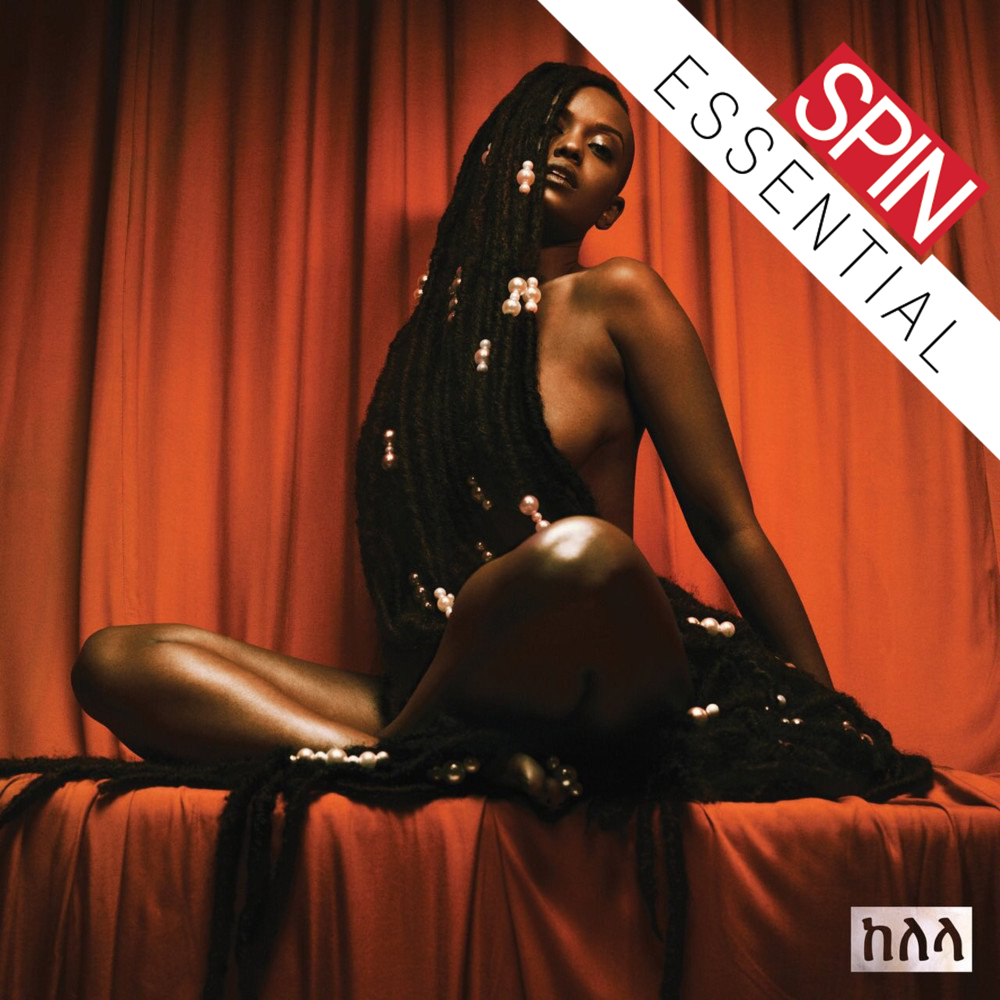Though Kelela’s art proudly exists left-of-center, she’s never come off like a peculiarity or a novelty. Her influences—underground bass, turn-of-the-millennium R&B, post-dubstep chaos—meld with her sinuous, jazz-inflected vocals into a new kind of emotional language. The aesthetic is weird, but the humanity is familiar—a tension that animates Take Me Apart, her debut LP and strongest work yet.
“LMK,” Take Me Apart’s lead single released this summer, showed Kelela was preparing to make a grand-scale leap. Kelela let that nocturnal mystique dissipate just slightly, revealing some of her coldest lines yet (“Did you think you’re my ride home, baby? / ‘Cause my girls are parked behind”), over a hook propelled by nightclub synths and stomps. Take Me Apart smoothes her earlier work’s percussive edges for a poppier sheen: She isn’t the first artist to terraform her indie cred into something grander, but with the heightened stakes, her Dionysian insistence still manages to thrill within the seamless machine.
Although Take Me Apart’s production is densely layered and seductive, the album thrives off how Kelela deploys those sonic strands to resonating effect. Jam City composes an astonishing neon thicket on the album-opening “Frontline,” before cutting out at its climax. Here, Kelela uncovers a whole character arc with four anthemic “No, no”s: The first with staccato delivery as she initially pivots away from her underperforming lover, and the final one with the instruments at full force as vocal harmonies join her resolve. “Enough”—which arrives after the sentimental “Waitin” and the sexual invigoration of “Take Me Apart”—sees Arca throwing in tribal percussion and ghostly sonics to give Kelela’s passions a mythical quality. But the track ultimately revolves around her humanity, rather than letting her remain a mystery. Instead of plateauing on the hook, the production howls as if it’s panting along with Kelela.
Though Kelela’s narrative follows a linear path—from a needed breakup to picking up the emotional pieces—she still manages to say something compelling about the subject. Her songwriting tends to veer away from settling with superlatives and pejoratives, instead stretching verses from singular moments. Conventional wisdom prizes emotional clarity over bodily desires, but on “S.O.S.,” Kelela knows it’s not that simple (“I could touch myself bae, but it’s not the same / If you could stop and help me out”). Elsewhere on “Better,” she scalpels the corpse of her relationship with an empathetic, yet trembling hand (“You replied, ‘Could I’ve done something’ / You got some nerve asking me now”).

Also Read
Video: Kelela – “Frontline”
Some of the producers here date back to 2013’s Cut 4 Me, and their relationship with Kelela is rooted deep enough for them to reify her emotions. Still, the album’s most ascendant moments come from kwes and Arca, whose crystalline compositions have garnered their own acclaim. “Turn to Dust,” the album’s epoch, focuses on the emotional distance between her and a potential love interest that’s irreconcilable through language, as Arca’s restrained strings create a sense of devastating suffocation.
While many musicians have purposely skirted the R&B label—whether in the artistic pursuit of transcending genre, or because of the fact that every black singer isn’t an R&B artist—Kelela proudly stands within the genre’s tradition. For the most part, she avoids making any grandstanding romantic or political statements, but Take Me Apart finds its purpose within the subdued complexities. It’s focused on something as intimate as personal desire, but the music creates a vast expanse for Kelela to run free.




